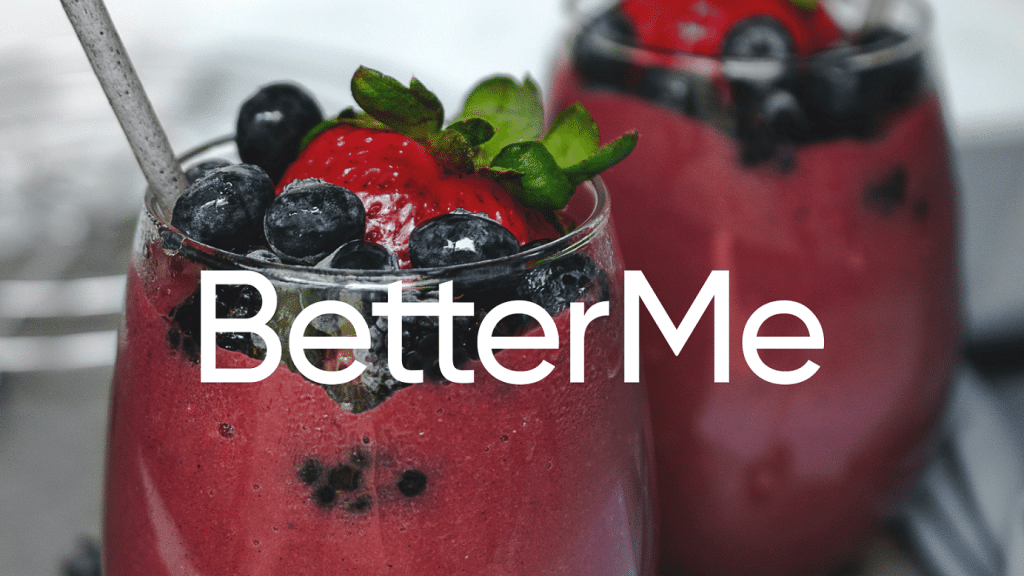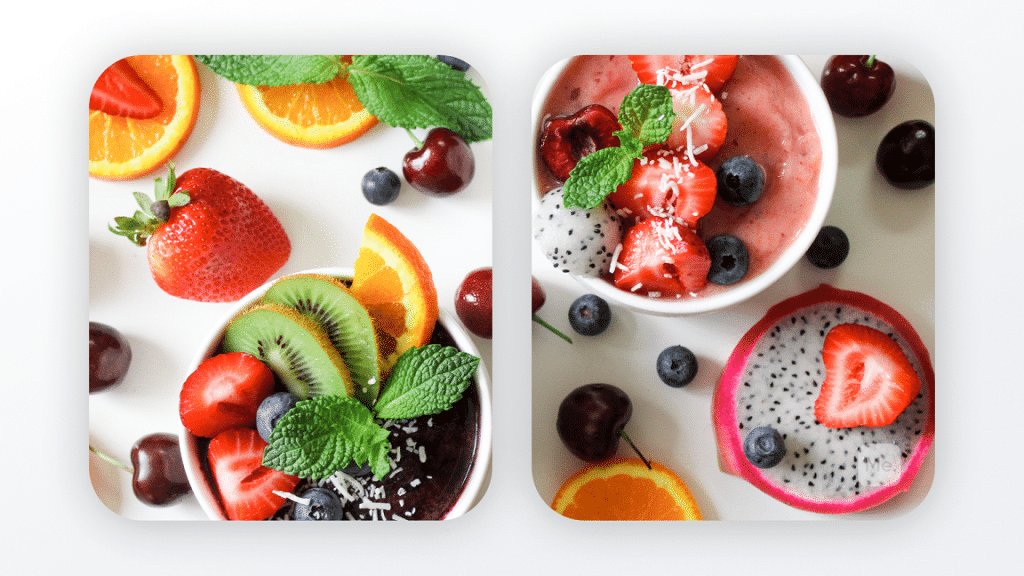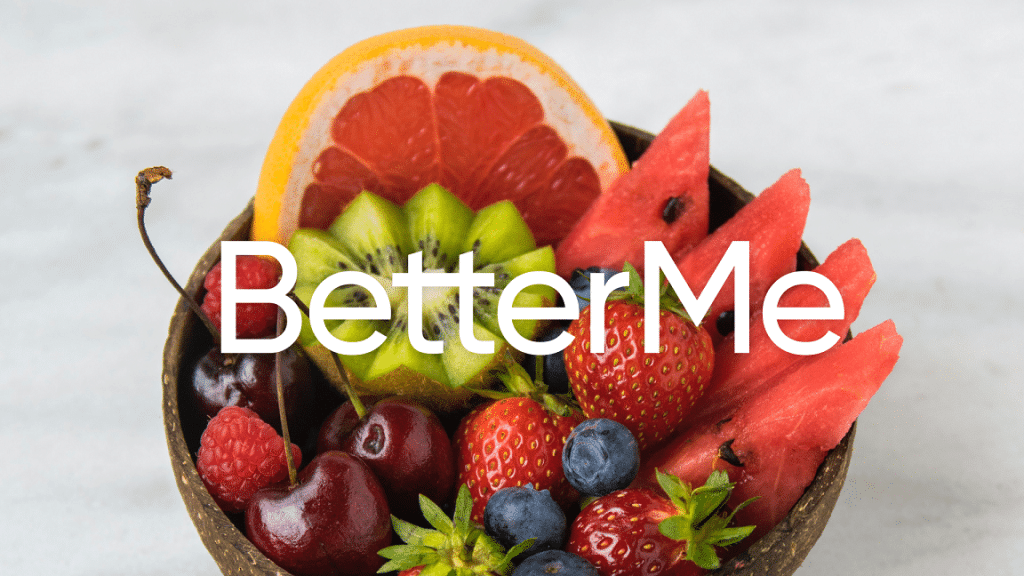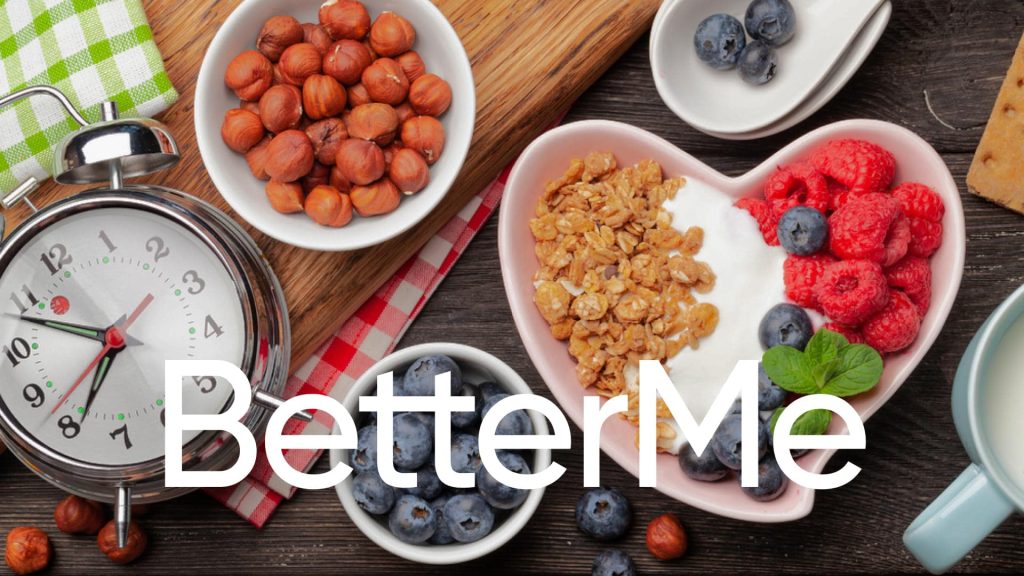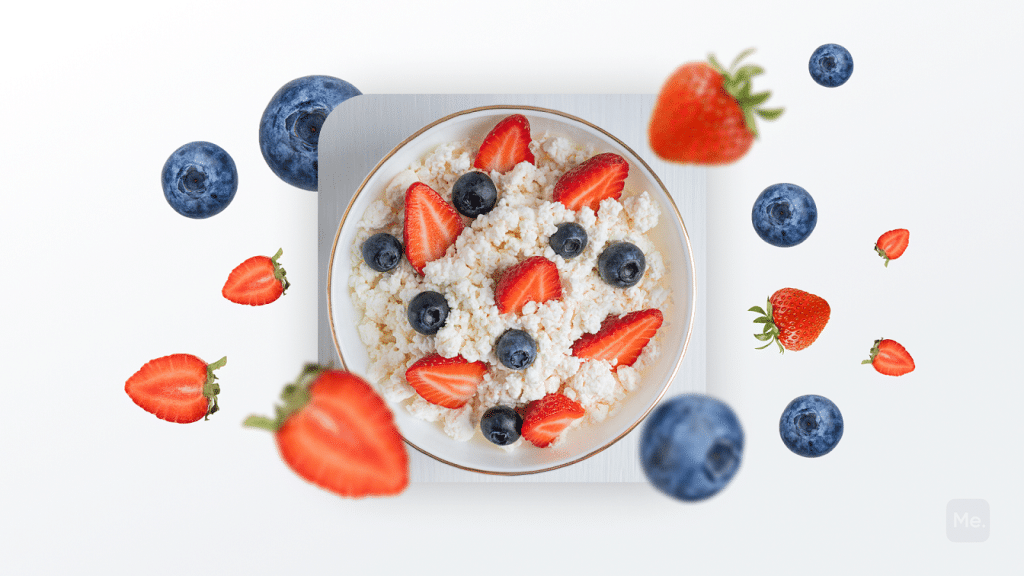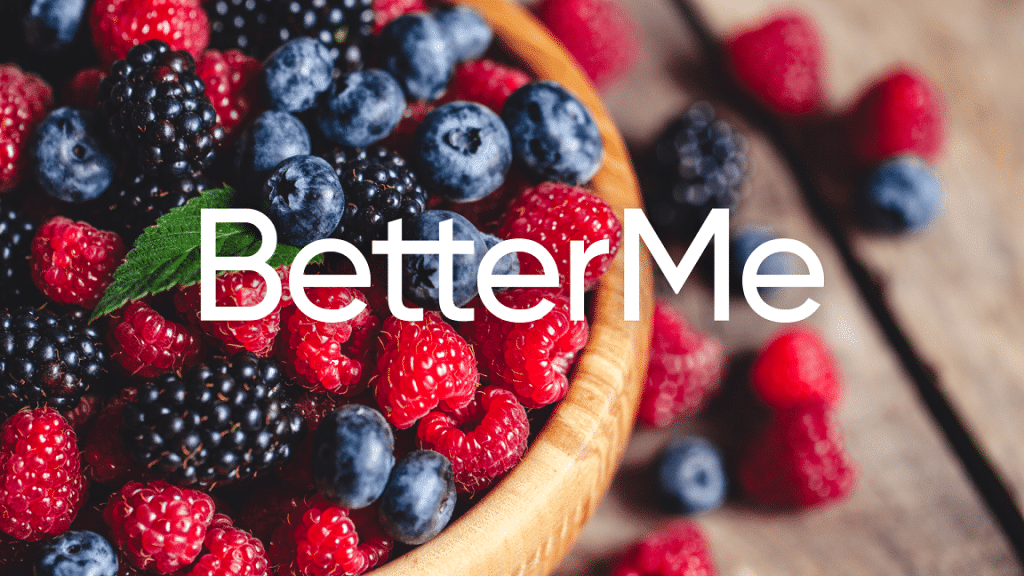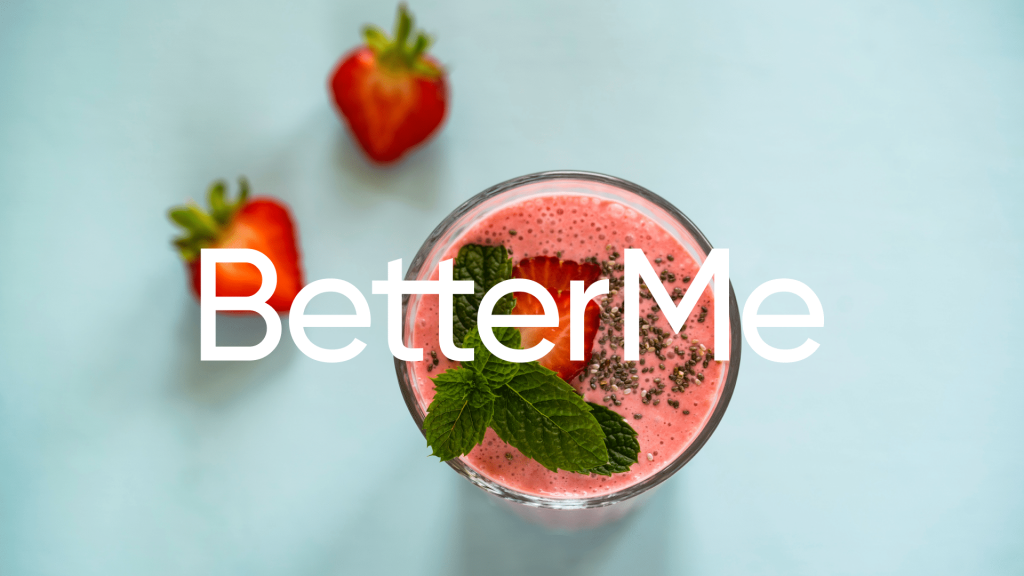Bilberry Benefits For Weight Loss: Know Before You Try
It is no secret that berries are highly nutritive when it comes toweight-loss. Berries are low in calories but high in flavonoids and polyphenols, which may help you maintain weight. As for bilberries, which when compared to other berries aren’t that popular, they abound in beneficial components, including anthocyanin and antioxidants. Bilberry may benefit your whole body as it could help prevent certain diseases. In addition to these benefits, daily consumption is associated with weight loss. Despite all this we should be asking if there even is such a thing as a bilberry diet. How about if it is possible to substitute other foods with it? Let’s find out the answers together.
Get your personalized
meal plan!
Bilberries Vs. Blueberries
The bilberry and blueberry sound almost the same, which suggests a similarity in their properties. Consequently, when people read or hear about the bilberry benefits for weight loss, they associate them with those of the blueberry, which has plenty of anthocyanin and nearly the same color as its counterpart. There is however a distinct difference between the blueberry and bilberry. First, a bilberry is slightly smaller than its familiar cousin. Second, blueberries are said to contain more antioxidants than bilberries. This could mean that bilberries are less effective at combating various diseases than are blueberries. Furthermore, blueberries are said to have the highest antioxidant capacity among all fresh fruits. Blueberries turn out to have a stronger antioxidant effect than even the citrus fruits.
Concerning the content of anthocyanin for both the berries, bilberry surprisingly proves to have 4 times more than blueberry does. As a result, bilberry has been shown to be more effective in facilitating one’s night vision and nourishing the visual purple component in the retina. Likewise, bilberries are helpful in increasing the capillary strength. As anthocyanin is linked to weight loss, given the facts just stated it is quite logical to assume that bilberry is on average more effective than blueberry. Nevertheless, there has been more interest and in context a great number of studies dedicated to the effects of blueberry as a food helping in weight loss.
The history of the use of the bilberry and blueberry is quite fascinating as there are a number of significant historical points to note. While the benefits of the bilberry for weight loss and vision have been known to people for centuries, the same properties found in the blueberry emerged only in the 1920s. Before blueberries were widely grown in North America, the bilberry had already been popular throughout Europe. The first documented use of the berry was in the 16th century, when it was consumed as a dried fruit for medical purposes. Later, in addition to this, the use of the bilberry proved to be of particular help to soldiers in WW2, improving their night vision.
After the war scientists studied the benefits of this berry for eyesight to gain better information on the properties of the bilberry, particularly in terms of its support of eyesight. As for the blueberry, it was first cultivated in the U.S. and has remained one of the most important berries on plantations. Nowadays, this berry is considered to be one of the richest in antioxidants (6).
Read More: Strawberries On Keto Diet: Are They A Safe Bet?
What Are The Benefits Of The Bilberry?
Apart from being a delicious berry that can blow your mind with its sour-sweet flavor, the bilberry is beneficial for your health. Indeed, even small doses of this berry may considerably improve your wellbeing on many different levels. The bilberry is good for:
- Your eyes. Bilberries have a reputation for playing an important role in the treatment of a variety of eye conditions, including glaucoma, dry eyes, and cataracts. In addition, it could help retinitis pigmentosa, which is a rare hereditary disorder entailing the loss of cells in the retina. Ultimately, this eye condition could lead to vision loss (4, 13, 14).
- Reducing inflammation and preventing the oxidative stress. Bilberries are high in antioxidants, including anthocyanins, which can protect cells against oxidative damage (10). This may further prevent the occurrence of heart conditions, cancers, and other diseases (12). Bilberries with the great amount of antioxidants they contain, could prevent the oxidative stress, which has been found to lead to age-related diseases, cardiovascular disorders, etc. (3).
- Your blood vessels. Bilberry consumption is said to strengthen the walls of your blood vessels. Furthermore, the berry may be beneficial for treating varicose veins and hemorrhoids (13).
- Lowering the blood sugar level. Bilberries are said to have a hypoglycemic effect, mitigating the control of blood sugar levels in the human body, which by extension could be used for preventing and dealing with type II diabetes (12).
- Your nerves and brain. The anti-inflammatory property of bilberries and their ability to widen the blood vessels could prevent or slow down cognitive decline and hypertension (12).
Due to their health benefits, bilberries are often used for holistic purposes and are hyped as the most useful of all berries. What bilberries are most famous for is definitely their ocular effect, in which they prove to be similar to their closest counterparts – blueberries. However, the above-mentioned benefits are not the only properties of the bilberry: it is also known for its weight-loss effect.
How To Dose Bilberry?
Although the bilberry is a healthy berry that benefits your body in numerous ways, overconsuming it might lead to adverse consequences. At the same time, there is little scientific evidence on how much bilberry you should eat. It is suggested that the normal daily dose is 20-60 grams of dried and ripe berries. As for the bilberry tea, it should include no more than 1-2 teaspoons of mashed bilberries (13).
According to the European Medicines Agency, the daily dose of bilberry can reach 160-540 mg for adults. As for children and individuals under 18, they are not recommended to consume bilberry supplements and extracts at all. Ripe berries however, are safe for everyone in moderate amounts (9).
There is very little information on overdosing bilberry. There was a case when an individual was consuming a bilberry extract containing 73 mg of anthocyanins for 30 days. Ultimately, this caused poor circulation and this subsequently led to chronic venous insufficiency and leg swelling (5). In addition, it was reported that overdosing highly concentrated bilberry supplements may harm your health due to its excess concentration of tannins (13).
As for the bilberry diet as a concept, it hardly exists because it is impossible to eat bilberry instead of other foods that should make up a balanced diet. You should remember to have nutritious meals regularly, so that you get enough calories, macronutrients, vitamins, and minerals for your body to function properly. Overall, you can add bilberry to your diet as an additional food, not as a substitute.
Side Effects Of Bilberry
Although there is no distinct and evidence-based list of bilberry side effects, some studies have suggested that bilberry might be harmful for (5, 13):
-
Pregnant And Breastfeeding Women
There is no information on whether bilberry is safe for this group of people, which is why it is better for you to stay on the safe side.
Whether you’re a workout beast or just a beginner making your first foray into the world of fitness and dieting – BetterMe has a lot to offer to both newbies and experts! Install the app and experience the versatility first-hand!
-
People With Diabetes
When consumed with diabetes medications, bilberry leaves might increase your blood sugar. It is highly recommended to control your blood sugar level regularly if you decide to stick to the bilberry diet.
-
Individuals Before And After Surgery
Since bilberry may influence your blood sugar levels, it is recommended to quit eating it at least two weeks before a surgery.
- People With Bleeding Disorders
Bilberry increases the risk of bleeding when taken along with blood-thinning drugs, including aspirin, warfarin, and others.
Bilberry Benefits For Weight Loss: What’s The Buzz?
Beside all the health benefits bilberry offers you, there is a special one that has been recently attracting more and more attention: weight-loss facilitation.
Certain studies have demonstrated that the anti-inflammatory effect of bilberries may contribute to weight loss. As a result, bilberry benefits for weight loss involve a potential improvement of metabolism and insulin resistance (8).
Anthocyanin, which abounds in bilberry, is said to have an auspicious effect on the bodyweight, particularly in those people with overweight and obese conditions. Consequently, the high anthocyanin content is one of the key bilberry benefits for weight loss. However, we would like to see more research in this regard. One study involving 124,000 participants showed that an increased intake of anthocyanins could result in weight loss in 27-65-year-old women and men. Furthermore, this may help people keep weight off and improve their health (2).
Another study demonstrated that anthocyanins are effective in curbing one’s appetite, meaning they have a positive impact on overweight. Consequently, consuming bilberries on a daily basis could add to your sense of satiety and, correspondingly, decrease the chances of overeating (2).
The larger the anthocyanin content in a product is, the smaller the weight gain is. This is what 2 studies with over 133,000 and 124,000 participants respectively showed. Similarly, consuming foods high in anthocyanin may reduce fat mass, as a study with 2,734 female twins illustrated. In this study, the participants burned 3-9% of fat, eating foods rich in anthocyanin (11).
Bilberry benefits for weight loss was proved by yet another study that lasted 4 years and involved 124,086 individuals. On average, the participants lost 10-32 pounds throughout the period of the study as a result of eating foods rich in flavonoids, flavan-3-ols, anthocyanins, and flavonoid polymers (7).
Likewise, anthocyanin may significantly slow down lipid accumulation and reduce body fat mass after consuming it for 12 weeks (2).
Is Bilberry Really That Great?
Although a number of studies have pointed out anthocyanin and bilberry benefits for weight loss, these are still not conclusive enough. Animal studies, which are useful to understand the impact of a particular product or activity on human beings, show disparate results each time. For instance, after carrying out two same studies, a group of researchers came to two different conclusions. While the first study showed a significant decrease of body mass in mice, the second study ended with only a small loss of weight (2).
In general, as numerous studies suggest, bilberry may be useful in weight loss. However, is that loss significant? The answer to this question can be found in a plethora of other studies. The study of Bertoia et al. proves that adding anthocyanin-rich foods may lead to a wide range of results (7). However, this loss is not as drastic as some people might expect it to be. Another study that involved overweight and obese participants with type II diabetes showed that consuming a bilberry extract hardly influences one’s weight. What the bilberry extract may do, though, is cause a glycaemic response to glucose, enabling people to control their blood sugar level. In fact, this may help you keep weight off and encourage you to change your lifestyle (1).
So, if your goal is to lose weight fast, the bilberry diet might not be the best option for you. It takes time for the bilberry benefits for weight loss to become real. On the other hand, if you can wait a little and do not want to rush your transformation, adding bilberry to your meal plan is rather beneficial, as it could keep weight off (2).
Dropping pounds by the dozens without putting yourself through the wringer is everyone’s weight loss pipe dream. But what if we told you that the BetterMe app can make that happen? Keep yourself in prime shape with our fat-blasting workouts, delicious budget-sparing recipes, and body-transforming challenges with our app!
Takeaways
Due to the great number of flavonoids and polyphenols, bilberry is deemed one of the most useful berries. Although it is often confused with blueberry, these are still distinguishable, particularly for their properties. In fact, bilberry, compared with blueberry, is richer in anthocyanin, meaning it is more auspicious for weight loss.
Bilberry has a positive impact on your eyes, being able to prevent and treat a range of vision-related disorders. Likewise, bilberry may potentially:
- Improve your nervous system, lowering the risk of hypertension and cognitive decline
- Reduce inflammation
- Prevent the oxidative stress, reducing the risk of age-related and cardiovascular diseases
- Strengthen the walls of your blood vessels
- Lower blood sugar levels
Concerning weight loss, multiple studies have suggested that it may help you shed some pounds due to it being rich in anthocyanin. Additionally, bilberry may help you keep weight off. However, the loss is not drastic, which means you cannot hope for fast weight loss just eating bilberry. Bilberry benefits for weight loss are believed to exist but they are not that vivid as the berry cannot constitute your whole meal plan. In other words, you should not overdose bilberry as doing this can put your wellbeing at risk. In particular, you should be careful when including bilberry supplements and extracts in your diet, as these are not recommended to everyone. Individuals under 18 are not recommended to consume these, and the same goes for pregnant and breastfeeding women, people with diabetes, individuals who are about to have a surgery or have recently undergone one, and people with bleeding resources.
Although the bilberry benefits for weight loss are obvious, according to many studies, you should not expect considerable results just by sticking to the bilberry diet. To achieve greater results, you should engage in other weight-loss practices apart from the diet. For instance, you might want to drink water before you begin your work outs or just start drinking more water in general. Bilberry will make an additional supplement to your other weight-loss activities but shouldn’t be considered as the main component of your weight-loss journey. Plus, as with any other diet plan, you should consult your dietitian and doctor to plan your bilberry diet properly.DISCLAIMER:
This article is intended for general informational purposes only and does not address individual circumstances. It is not a substitute for professional advice or help and should not be relied on to make decisions of any kind. A licensed physician should be consulted for diagnosis and treatment of any medical conditions. Any action you take upon the information presented in this article is strictly at your own risk and responsibility.
SOURCES:
- A single supplement of a standardised bilberry (Vaccinium myrtillus L.) extract (36 % wet weight anthocyanins) modifies glycaemic response in individuals with type 2 diabetes controlled by diet and lifestyle (2013, ncbi.nlm.nih.gov)
- Antiobesity Effects of Anthocyanins in Preclinical and Clinical Studies (2017, ncbi.nlm.nih.gov)
- Antioxidants: In Depth (2013, nccih.nih.gov)
- At a glance: Retinitis Pigmentosa (2019, nei.nih.gov)
- BILBERRY (n.d., webmd.com)
- Bilberry Vs. Blueberry (n.d., livestrong.com)
- Dietary flavonoid intake and weight maintenance: three prospective cohorts of 124086 US men and women followed for up to 24 years (2015, bmj.com)
- Effects of Bilberry Supplementation on Metabolic and Cardiovascular Disease Risk (2020, ncbi.nlm.nih.gov)
- European Union herbal monograph on Vaccinium myrtillus L., fructus recens (2015, ema.europa.eu)
- Herbal Medicine: Biomolecular and Clinical Aspects. 2nd edition. (2011, ncbi.nlm.nih.gov)
- Recent Research on the Health Benefits of Blueberries and Their Anthocyanins (2019, academic.oup.com)
- Slide show: Add antioxidants to your diet (2019, mayoclinic.org)
- The Health Benefits of Bilberry (2020, verywellhealth.com)
- What Is Retinitis Pigmentosa? (n.d., webmd.com)

